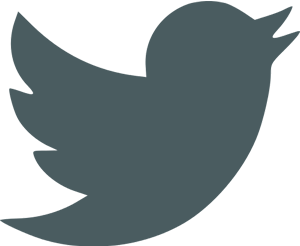The Cultural Impact & History of Bingo in Society

The word Bingo has a variety of associations for different people. Some may think of the song “B – I – N – G – O”, while others might think of the online games that you play from the couch — or you could envisage little old ladies in coats, hunched over their cards in a dark and draughty hall.
Whatever version you picture, chances are that you’re right. Bingo has gone through a whole heap of changes from its inception and is enjoyed by a host of people from different parts of the world and from different backgrounds.
No matter what your opinion is – whether you think it’s an up-and-coming online game or an over-the-hill pastime – bingo has a rich and varied history and has shaped modern-day society in more ways than one.
Humble beginnings
If you picture the humble beginnings of bingo as a hall in America or the UK, you’ll be surprised to know that we can actually credit Italy, not just with pizza and pasta, but with bingo too.
Although its exact birthplace might have been lost in time, what we do know is that it began in the form of a national lottery, and undoubtedly began in Italy. The “Lo Giuoco Lotto Italia” dates back to 1530 and it was the Italian Saturday night national lottery that is still in weekly play to this day.
Back in the 1530s, the Italian Saturday lottery looked a lot like bingo does today. Players still had cards with aligned rows and players rushed to match their numbers with the winning numbers that were pulled from a sack.
The popularity of the game had spread so much that by the 1770s it had jumped borders over to France and became “Le Lotto”. It was the French who decided to shake things up a bit and changed the cards into the traditional 3 rows and 9 vertical that we’re used to in the standard 90 ball game today. It then made its way over to Germany, where it was introduced as a learning game for children in the 1800s for everything from numbers to verbs. This version of the game was called Tombola and it helped kids learn how to use multiplication, spellings and even some history.
The United States
We’re going to jump forward in the timeline to North America (we’ll cover its movement to the UK and how it was and still is used in more detail below). Bingo had made it to the other side of the globe by 1929, albeit under a different name. The Americans called the game “beano” and it grew in popularity after starting as a carnival game in Atlanta, Georgia.
It is here that the name of the game actually came about. Edwin Lowe, who was a toy salesman, was hosting friends over to play beano when he heard one of them shout “Bingo” instead of beano. Being an astute salesman, Lowe recognised that this had a much better ring to it and would probably be more popular on the mass market. After this, he said “I cannot describe the strange sense of elation which that girl’s cry brought to me. All I could think of was that I was going to come out with this game, and it was going to be called Bingo!”
Lowe went on to sell his first set of 12 cards for $1 and then $2 for the 24 set, however, he soon realised that for every game there were simply too many people winning and this meant that the money wasn’t enough to tempt players to join. He worked out that if he wanted to make the game commercially viable, that he’d have to have fewer winners and more squares on the cards.
To do this, he teamed up with a math professor by the name of Carl Leffler, who as a mathematical expert at the University of Columbia, was more in line to deal with the technical aspects of the changes. After working hard on the project Leffler was able to come up with 6000 different cards ready for commercial purposes.
Bingo and the church
Just a short time after the game was ready for commercial products, Lowe was approached by a Catholic priest about using it as a fundraiser for the church. Lowe was completely okay with the idea and very soon many churches had jumped onto the bandwagon. This avenue helped the game grow in mainstream areas too and very soon the game was exploding in popularity.
Around 10,000 games of bingo were being played per week in America by 1934. Today the game is still incredibly popular in North America and more than $90 million is spent per week between those that play online and traditional versions of the game.
The United Kingdom
Back in the 1800s, around about the same era as the game made its way to Germany, Bingo found a very welcoming new home in the UK. The game took off here like nowhere else on earth and soon become an incredibly popular pastime. The number slang tradition that we know today was coined in the UK where terms such as number 25 became “duck and dive” and 89 became “between the sticks”.
One of the most popular eras in the game’s history is during World War II. The game was used as distraction and entertainment for military troops between battles and in the UK to help pass time and boost morale for civilians.
After WWII ended, the game continued to grow in popularity across the UK, particularly in holiday camps that were a hit in the next three decades after the war. With morale boosted after the war and the hard times largely at bay, more Britons were able to go on holiday and bingo became a mainstay of the holiday camp operators as a form of entertainment for travellers.
The Betting and Gambling Act was passed in 1960 and the country was finally fully gripped with bingo fever. The introduction of ITV meant that dance halls and cinemas were becoming less popular and a lot of them became a new home for bingo players.
The number of Britons playing reached around 14 million during its peak times with over 1600 halls found throughout the country.
The rise of the internet and the smoking ban
Bingo first started to see a downfall with the rise of the internet and the national lottery in the 90s. However, in 2006 there were still more people attending games than football matches. So it remained a popular hobby for people all over the country.
In 2007 the smoking ban was put into place in the UK and this had more of a profound impact than ever imagined. Studies concluded that around 66% of all players were smokers – and whereas in pubs and restaurants smokers had the time to step out for a smoke, players could hardly leave in the middle of their games.
The smoking ban coincided with the upturn in online versions of the game and other easy money-making options like online scratchcards. Many predicted that the rise of those that wanted to play online would be the death of bingo halls as we knew them.
However, modern casinos took advantage of this trend to diversify their online portfolios while many kept their halls going on a slightly smaller scale. The huge money that is coming into online gambling has given casinos an extra profit avenue that helps them to keep community halls open. The halls themselves offer a crucial social ingredient that the online world doesn’t contain, and most players partake in both forms of the game. In total, the combination of online and traditional games is now making over 1 billion Pounds for the UK every year.
Although the popularity of bingo halls is not quite what it used to be, they are still enjoyed by a huge number of people all over the country and they’re still particularly useful for charity events.
Looking To The Future
The future is bright because of the combination of the community enjoyment and social aspect of its traditional form and the convenience of the online game.
We’re proud to have been serving the British public for many decades and we are always looking for new and innovative ways to ensure that our players enjoy their experience every time.
If you’re looking to play bingo online on a safe, secure and friendly platform, our 24/7 site is always available and our expert customer service is always on hand to help you if you have any questions, queries and problems.
Sign up today and take advantage of our wonderful welcome bonuses.
We’re here to help you keep it fun – remember to set your deposit limit. Click here for more details on the safer gambling tools available including reality checks and the ability to take a break from your gaming.






